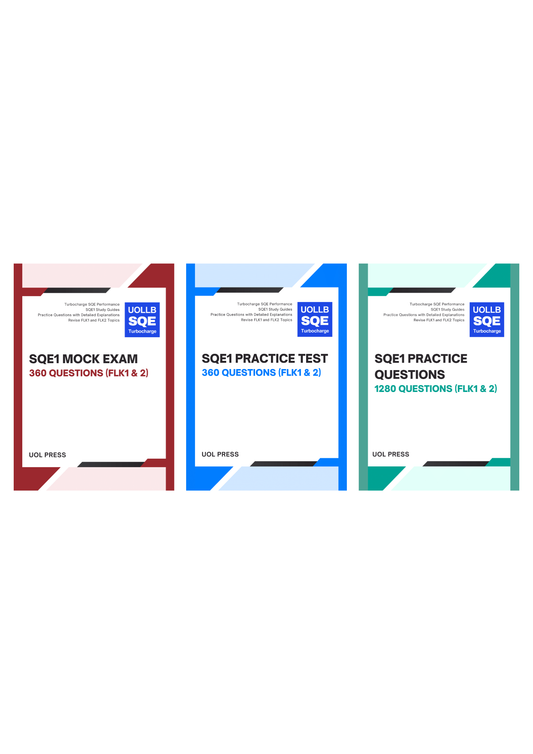Benefits of Studying PGDL or GDL
Share
The Postgraduate Diploma in Law (PGDL), also known as the Graduate Diploma in Law (GDL), serves as an essential gateway for individuals aiming to transition into the legal profession without a first degree in law. This programme is designed to equip non-law graduates with a comprehensive foundation in legal principles and the practical skills needed to navigate the legal system effectively.
One of the most significant benefits of the PGDL / GDL is its role as a career conversion pathway. It democratises access to legal education, allowing individuals from various academic disciplines to pursue a career in law. This inclusivity enriches the legal profession with diverse perspectives and skills. The course's availability in full-time and part-time formats further enhances its accessibility, providing flexibility for students who may need to balance their studies with work or other commitments.
The curriculum of the PGDL / GDL covers essential legal subjects, such as Contract Law, Tort Law, Criminal Law, Public Law, EU law, Property Law, and Equity and Trusts, ensuring that students acquire a broad understanding of the law and its application. This broad coverage is instrumental in developing critical thinking and analytical skills, enabling students to tackle complex legal issues effectively. Moreover, the programme places a strong emphasis on skill development, particularly in legal research, writing, and advocacy. These skills are not only vital for a successful career in law but are also highly valued in various other professions.
Beyond foundational legal knowledge, the PGDL / GDL serves as a stepping stone to further legal qualifications and specialisation. Graduates can proceed to professional legal training courses, such as the Solicitors Qualifying Examination (SQE), the Legal Practice Course (LPC) or the Bar Training Course (BTC), depending on their career aspirations to become solicitors or barristers. This progression is crucial for those who wish to specialise in particular areas of law, offering a pathway to practice law at the highest levels.
Additionally, studying for a PGDL / GDL opens up numerous networking opportunities with legal professionals and peers, which can be invaluable for career development and growth. The qualification enhances employability, making graduates attractive candidates in the competitive legal job market. The insights gained into the legal system, legal institutions, and the societal role of law further empower students, enabling them to apply their knowledge in practical, real-world contexts.
In conclusion, the PGDL / GDL is more than just an academic qualification; it is a transformative journey that prepares individuals for a rewarding career in law. It offers a unique blend of theoretical knowledge and practical skills, opening doors to various opportunities within and beyond the legal profession. Whether one aspires to become a solicitor, a barrister, or to leverage legal knowledge in a non-traditional legal career, the PGDL / GDL lays down the foundational bricks on which a successful career can be built.
One of the most significant benefits of the PGDL / GDL is its role as a career conversion pathway. It democratises access to legal education, allowing individuals from various academic disciplines to pursue a career in law. This inclusivity enriches the legal profession with diverse perspectives and skills. The course's availability in full-time and part-time formats further enhances its accessibility, providing flexibility for students who may need to balance their studies with work or other commitments.
The curriculum of the PGDL / GDL covers essential legal subjects, such as Contract Law, Tort Law, Criminal Law, Public Law, EU law, Property Law, and Equity and Trusts, ensuring that students acquire a broad understanding of the law and its application. This broad coverage is instrumental in developing critical thinking and analytical skills, enabling students to tackle complex legal issues effectively. Moreover, the programme places a strong emphasis on skill development, particularly in legal research, writing, and advocacy. These skills are not only vital for a successful career in law but are also highly valued in various other professions.
Beyond foundational legal knowledge, the PGDL / GDL serves as a stepping stone to further legal qualifications and specialisation. Graduates can proceed to professional legal training courses, such as the Solicitors Qualifying Examination (SQE), the Legal Practice Course (LPC) or the Bar Training Course (BTC), depending on their career aspirations to become solicitors or barristers. This progression is crucial for those who wish to specialise in particular areas of law, offering a pathway to practice law at the highest levels.
Additionally, studying for a PGDL / GDL opens up numerous networking opportunities with legal professionals and peers, which can be invaluable for career development and growth. The qualification enhances employability, making graduates attractive candidates in the competitive legal job market. The insights gained into the legal system, legal institutions, and the societal role of law further empower students, enabling them to apply their knowledge in practical, real-world contexts.
In conclusion, the PGDL / GDL is more than just an academic qualification; it is a transformative journey that prepares individuals for a rewarding career in law. It offers a unique blend of theoretical knowledge and practical skills, opening doors to various opportunities within and beyond the legal profession. Whether one aspires to become a solicitor, a barrister, or to leverage legal knowledge in a non-traditional legal career, the PGDL / GDL lays down the foundational bricks on which a successful career can be built.





























































